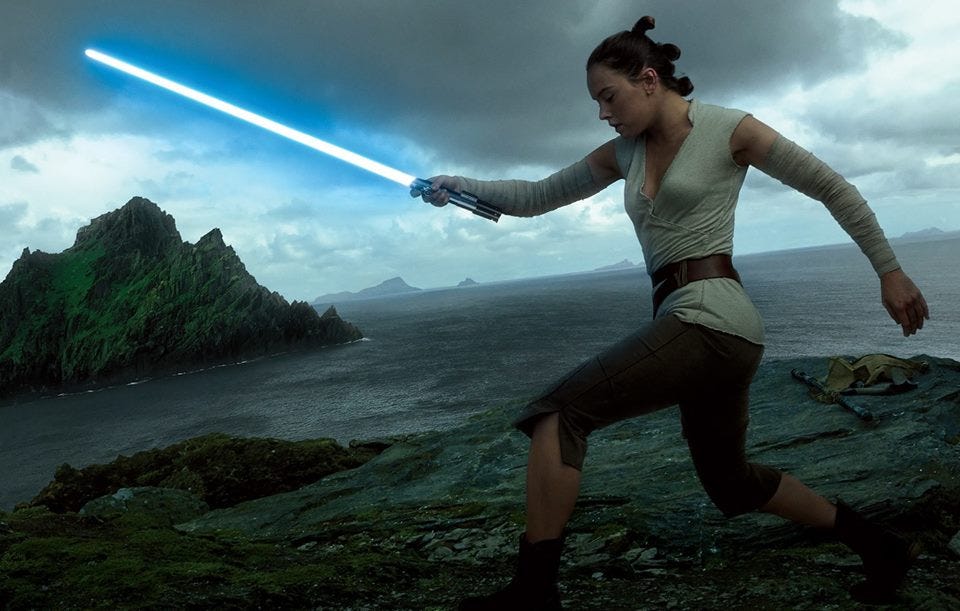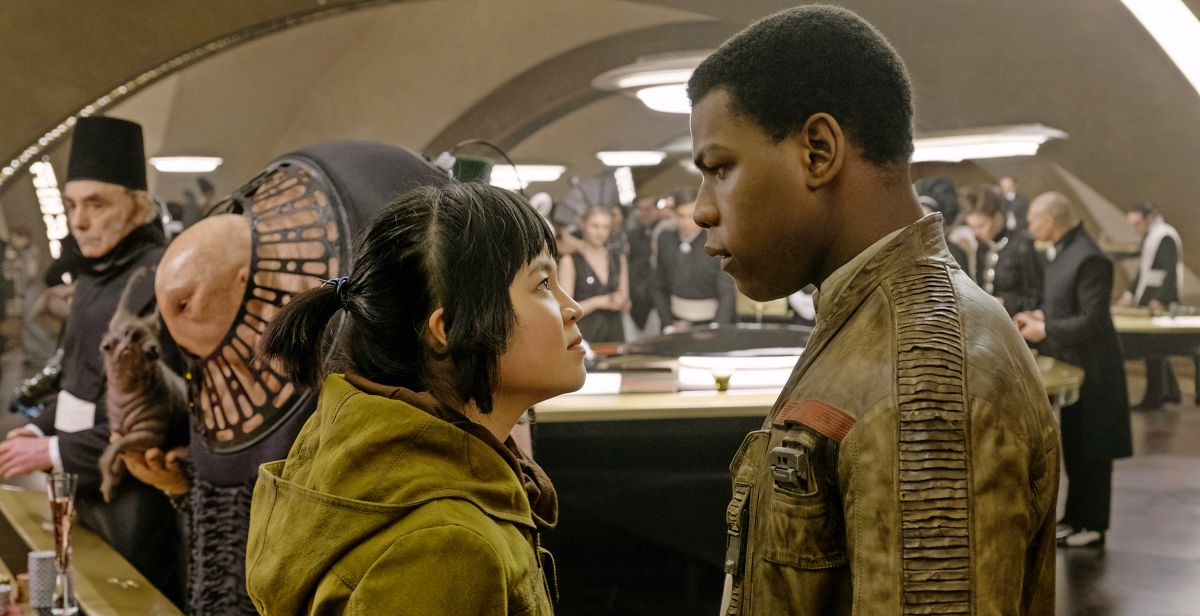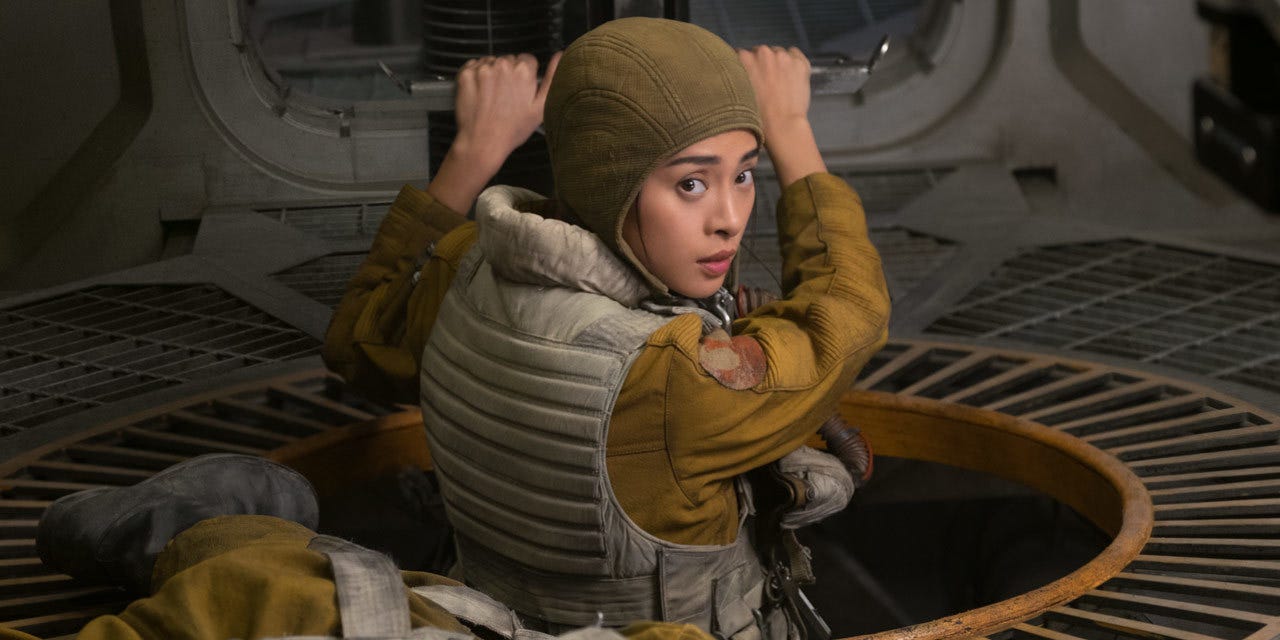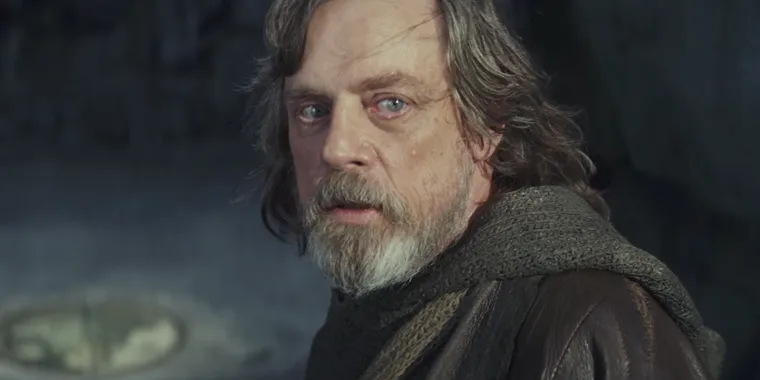The first time I saw the Coen brothers’ The Big Lebowski, I came out of the theater uneasy. It was funny, sure, but just when it looked like the plot was going to come together, the air went out of everything. There was no kidnapping. The protagonists neither saved anyone, nor failed to. They’d spent an entire film sniffing around the edges of a mystery that solved itself. None of it had a point. Not that I hadn’t enjoyed it, but Lebowski was a story about people doing things that never amounted to a damn thing. Were the Coens just screwing with us? Was the film an elaborate joke?
I thought The Big Lebowski was trying to be a funny take on the plot of Fargo. That was close, but it took me a few years to realize what was actually happening. The Big Lebowski was actually a film about characters who thought they were in the plot of Fargo. The joke wasn’t on the audience. The writers wasn’t trying to mess with expectations just to get to a punchline. The point of the film was to follow what thinking you’re about to solve a mystery means when you’re too dense to realize the mystery doesn’t actually exist.
The story was what the characters’ perception of events did to them and pushed them to, not the events caused by their actions. Whatever we say as audience members about wanting stories driven by characters, we’re often unforgiving towards stories built entirely around moving people forward at the expense of people moving plot at the same time.
How We’ve Been Trained

There’s a lot of ink spilled and takes tooken and tweets entwittered about what ~~~Blockbuster Culture~~~ is doing to us. Whether it’s ruining cinema, whether smaller stories can get funding, etc., etc., etc. I don’t want to get into that, exactly — at least, I don’t want to get into what relative value a superhero film about stopping an alien whatever has vs. a dark indie drama about family whatever, or what the balance between them should be. That’s a whole different thing.
There is something about the style of tentpole storytelling that I need to touch on, though, because it’s taught us to expect certain things out of stories of a certain size and scope. Basically, we expect things to happen — or rather, we expect characters to make things happen — and when they don’t, well… we get the reaction to The Last Jedi.
Let’s catch up on a few of the stories the Rian Johnson’s Star Wars flick throws at us, shall we?
In one, two characters set off on a desperate mission to save their companions. They travel to a decadent planet to recruit a codebreaker, fail, recruit a different codebreaker instead, break into the enemy stronghold to disable their systems, fail, and barely escape.
In another, a character attempts to recruit a master warrior to her cause, fails, sets off to turn that master’s former pupil away from the enemy and onto her side, fails, and barely escapes.
And in the third, a talented pilot clashes with his commanding officer over how to save their fleet, sends his friends off on a desperate mission, mutinies to give that mission time, watches the mission fail, watches his mutiny fail, and barely escapes as his friends die around him.
Whew, that’s a whole lot happening for nothing to actually happen, isn’t it? Why would we spend almost three hours watching that? Futility is fine in one of those dark indie family whatevers, but this is a genre of Captain America punching the Red Skull’s superplane-flying face into the sea. It’s a world where heroes do heroing until the villains’ plans are at least a little screwed up. Not one where plans fail and fail and fail and even those failures don’t affect how the plot turns out.
My point is, we’ve been trained to expect a certain kind of narrative when we walk into an IMAX theater. It may be dark, it may be painful, and there may be losses and failure, but protagonists still make things happen. Sometimes not what they intend to happen, but they do things and the plot that follows is a direct result of those things.
Were that the kind of story Johnson was telling in The Last Jedi, it would indeed be bad. Only it’s not, and the mode it is working in is an approach blockbuster filmmakers will need to incorporate if they intend to keep movies with superheroes and dinosaurs and ancient monsters. Character movement doesn’t have to come at the expense of plot movement, but until writers are willing to let the two diverge, the stories in our tentpoles will become increasingly utilitarian and rote.
If the point of a character’s arc is only to make a thing happen that the plot requires, the character’s arc may not actually exist.
Rose, Finn, and the Glory of Canto Bight

The most common complaint I’ve heard both from people who loved The Last Jedi and those who wanted it to hyperspace into the void is that there’s this one storyline that’s totally pointless, a fluffy but meaningless adventure at best or a total waste of time at worst.
That sequence is Rose and Finn’s infiltration of Canto Bight, and here’s the thing: it’s not useless. It’s the point of the whole damn film. But only if you stop thinking about stories as things that necessarily must move plot pieces into place. I get that Canto Bight feels like an exercise in futility. Rose and Finn not only fail to find the codebreaker they need to save their friends, their replacement betrays them and most of the Resistance is wiped out anyway.
Look past the plot, though. Beyond the What, to the Who, and the Why.
There are two major things happening on Canto Bight. The first is the continuation of Finn’s journey that began in The Force Awakens. We meet Finn as he’s escaping The First Order, going on the run from an army that stole him as a child and trained him to be a killer. Through that first film, Finn’s primary motivation is to escape. Not to stop his former captors, not to help the people who saved him, just to run away. He’s fine if his new friends escape with him, but if they don’t want to be smart enough to bolt, he’s not sticking around.
Things change when Rey is captured, and Finn’s motivation evolves. Now the only thing that matters is rescuing his friend, to the point where he lies about his ability to help the Resistance blow up the damn superweapon that’s going to kill them all so he can get back to Starkiller base. By the end, he does what the Resistance needs, but it’s all secondary to saving Rey.
That’s where we pick Finn up at the start of The Last Jedi, with the Resistance about to be wiped out, and the understanding that Rey is eventually going to rejoin the fleet unaware of the danger she’s stumbling into. For Finn, this is too much. He steals the beacon, and tries to flee, this time not to save himself but to allow Rey to survive. From there, his mission with Rose to Canto Bight begins, and for the first time, he starts to understand that he lives in a universe more corrupt and poisoned than he ever imagined.
Canto Bight is a paradise on the outside. Yachts, casinos, bubbly drinks, fancy clothes; the works. His companion Rose, though, is unimpressed, and when he finally asks her what it is she could hate about such a glorious resort, she forces him to look closer. To see the fuel that powers this engine of decadence: children stolen from families, forced to work, and enslaved by the people living off of their labor. Canto Bight is another First Order. The whole damn galaxy is.
His journey from there moves through two stages. First, stand and fight to bring down the evil he hates to the core of his being. Then, finally: stand and fight, but to defend, not to destroy. It’s the synthesis of every piece of Finn we’ve seen until then, the actualization of the best of him.
That’s the Who. How about the Why?
The thing that cracks open Finn’s self-centered view of the world is the same thing that tells us why we’re watching this film at all. Why this battle matters beyond blowing up a few ships while the grinding forces of oppression roll ever onward. Beyond the veneer of limitless luxury of Canto Bight live the people — actual human-and-alien individuals — being exploited to keep the machine running. Bombing dreadnoughts and ramming flagships means nothing if they happen simply to bloody the nose of an enemy at the expense of the people forced to build the weapons you’re using.
It’s Rose Tico who understands this, who inspires a child to help their cause both that day and beyond, who — after smashing the city she hates so much — only says it was worth it after freeing the fathier they’d ridden in their escape. It’s Rose Tico who gives the Resistance its only true victory by lighting the spark in that beautiful, terrible city, and saves Finn from the same nihilistic path that Holdo pushes Poe off of.
It’s Rose Tico who tells us why this all matters. That’s worth a thousand storylines that exist simply to move a piece on the board to where the plot needs it to be.
Just Not In a Vacuum

I’m not saying What doesn’t matter. Plot is important for a lot of stories, and Star Wars largely runs on its plotting. Structure and momentum are vital elements to good storytelling, and I’m not striking some kind of anti-plot MFA class pose.
The point is that What doesn’t matter without Who and Why, but Who and Why can get by just fine for a bit without worrying about What. Yeah, eventually you’re going to have to find your way back to the pieces on the board, and The Last Jedi does just that. By the end of the story, things have changed. A lot of it despite the protagonists’ goals and efforts, but the story is in a massively different place when the credits roll.
What Johnson understands and showed us with The Last Jedi is that a lot of that change is empty without not only vital characters, but thematic depth. We’ve seen rebels fighting fascists before. We watched it for five of the eight films in this series, and we’re going to watch it for a sixth. That’s fine! The thing we have to remember is that while there may be a limited number of plot structures, there are an infinite number of souls to animate them.
Behind the futility of the character’s action, The Last Jedi gave life to the distinct and vibrant soul of this new Star Wars trilogy. It made this iteration on that old set of tropes its own creation, and it deepened our understanding of the people and themes working amidst the creaking wheels of the plot.
Maybe the mission Rose and Finn set out on was futile, but without them, The Last Jedi would have been just as meaningless.



